How coronavirus has changed life at Swiss embassies
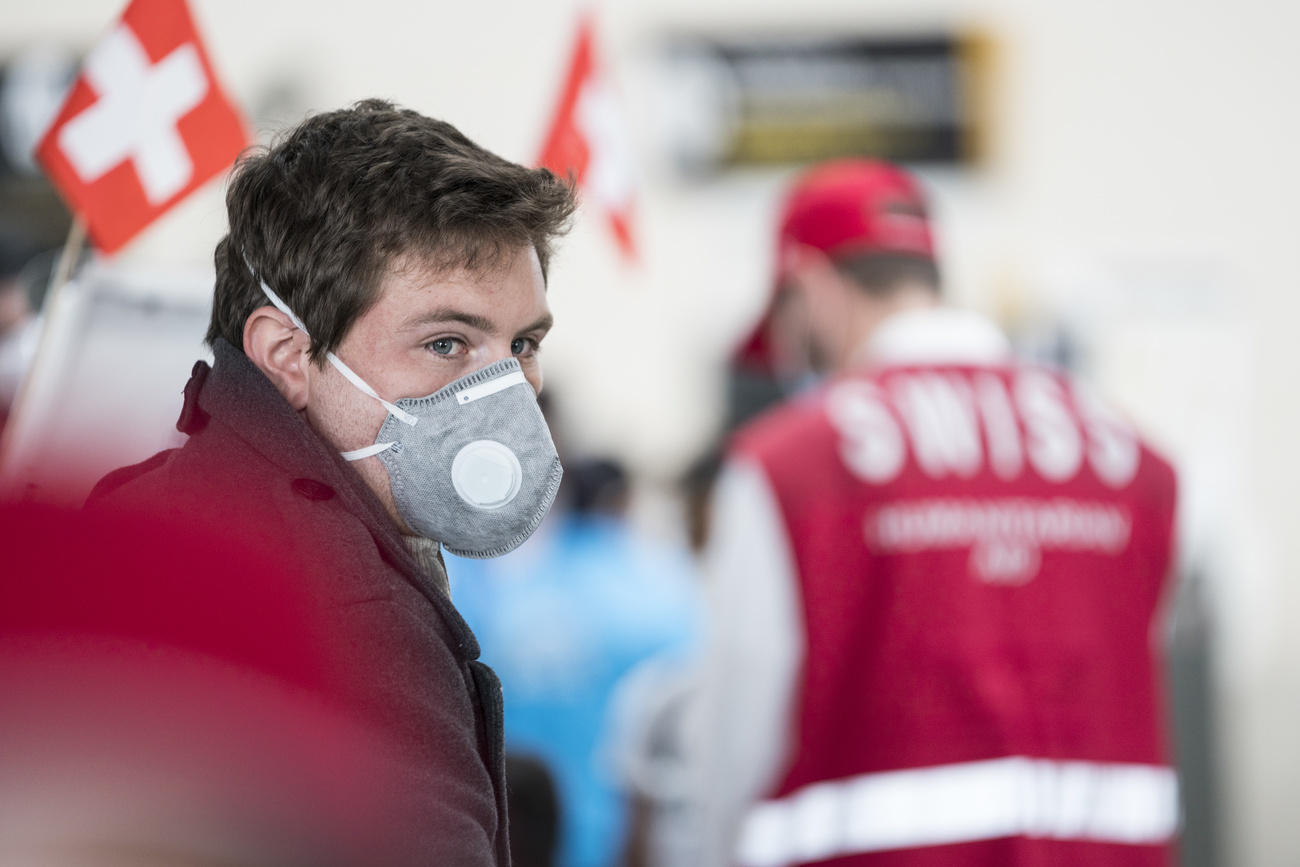
As many activities around the world have shut down because of coronavirus, diplomats have been working overtime to get their nationals home, often in difficult circumstances. We asked Swiss ambassadors around the world how the coronavirus has affected their work, and what their lives have been like in the past few weeks.
Despite the pressure they are under, many gave us lengthy, detailed replies. They stressed the unprecedented nature of this crisis and the need for solidarity. The embassies that responded to our inquiries were curated by the Swiss foreign ministry.
“This global crisis is unprecedented and is therefore uncharted territory for everyone,” writes Swiss Ambassador to France Livia Leu Agosti. In the past weeks, she has been dealing almost exclusively with the coronavirus crisis, “on the one hand with its effects on our fellow citizens abroad, and on the other hand with the changes in bilateral cooperation across the border”. At the same time, the embassy’s internal procedures have had to be continually adapted, she says. Almost all embassy staff now work from home, except for her and a few other employees.
Switzerland’s western neighbour is home to the largest community of Swiss abroad. In addition, “thousands of tourists” from Switzerland travel through France and its overseas territories every day. “To reach all these people and provide them with the necessary information, an intensive communication campaign was necessary via social media, the Internet and the Embassy’s newsletter,” writes Leu. She says Swiss consuls in Marseille, Lyon and Strasbourg as well as Paris have “worked with their teams seven days a week to answer the hundreds of inquiries and to facilitate the return journey of Swiss citizens”.
Together with the French authorities, Ambassador Leu also had to clarify the situation of some 175,000 French cross-border workers who commute to Switzerland every day for their work. “Their continued employment in Switzerland despite closed borders is very important because many of them work in Swiss hospitals in the border regions,” she told swissinfo.ch. Leu also had to “intervene on various occasions to unblock the delivery of confiscated protective masks”.
Asked about the importance of solidarity at this exceptional time, she says it is more important than ever. “I am convinced that France will not forget Swiss solidarity, just as patients in Swiss hospitals will remain grateful to French healthcare staff.”

“The pandemic is having a major impact on my daily life as an ambassador, but also on the lives of all embassy staff,” writes Ambassador Guillaume Scheurer in Morocco. “It is almost like a revolution, in the sense that we have had to completely rethink our way of working and our way of communicating both internally and externally.”
In dealing with the crisis and getting Swiss nationals home, diplomacy is more important than ever, he writes. Contacts with the Moroccan government are more intense than ever “since we are in almost permanent contact, day and night” and “we are managing this crisis together with other local, Swiss and international actors”.
There has been plenty of solidarity, he says. “The foreign representations in Morocco are working together and trying to make it easier for all tourists to return home. On several occasions, the Moroccan authorities have also shown a great deal of support, for example in authorising numerous repatriation flights or finding solutions for caravanners stuck in often deplorable circumstances.”
Swiss nationals living in Morocco have also offered accommodation for stranded compatriots, since many hotels have closed their doors.
“It is heart-warming to see these beautiful expressions of solidarity,” Scheurer writes. “Each successful flight, each problem solved, each passage on a ferry to France or Spain is felt as a real happiness, a personal and collective success.”

“I have already experienced several crisis situations, but never a crisis of this magnitude, of global dimension, with a completely open time horizon,” says Swiss Ambassador to India Andreas Baum.
The crisis has changed the life of the embassy overnight, with the focus now is on finding stranded Swiss nationals “in a country that is not only huge but is in a total lockdown” and somehow getting them home. Except for the dedicated special flights team, embassy staff are now working from home, and all meetings take place by phone or online. Baum says this is a completely new experience for him because he usually prefers to “meet face to face to discuss things or exchange written information”.
The Ambassador, a former doctor, likes to read at night to help him sleep, but sometimes that is also when the doubts come: “Can we all stay healthy? Have we taken all measures to protect ourselves as a team?”
Teamwork and solidarity are key, he says. “This illness, the fear of infection, will distance us from each other and whoever gets sick is suddenly to be excluded. Team spirit, humanity and solidarity are all the more important.”
And for inner balance, he says he can sometimes enjoy a privilege that not many people in lockdown have, “jogging in the embassy garden, dahlias as big as plates, colourful as they can only be in India, green parrots, and the thought: what an absurdly beautiful and wonderful spring”.
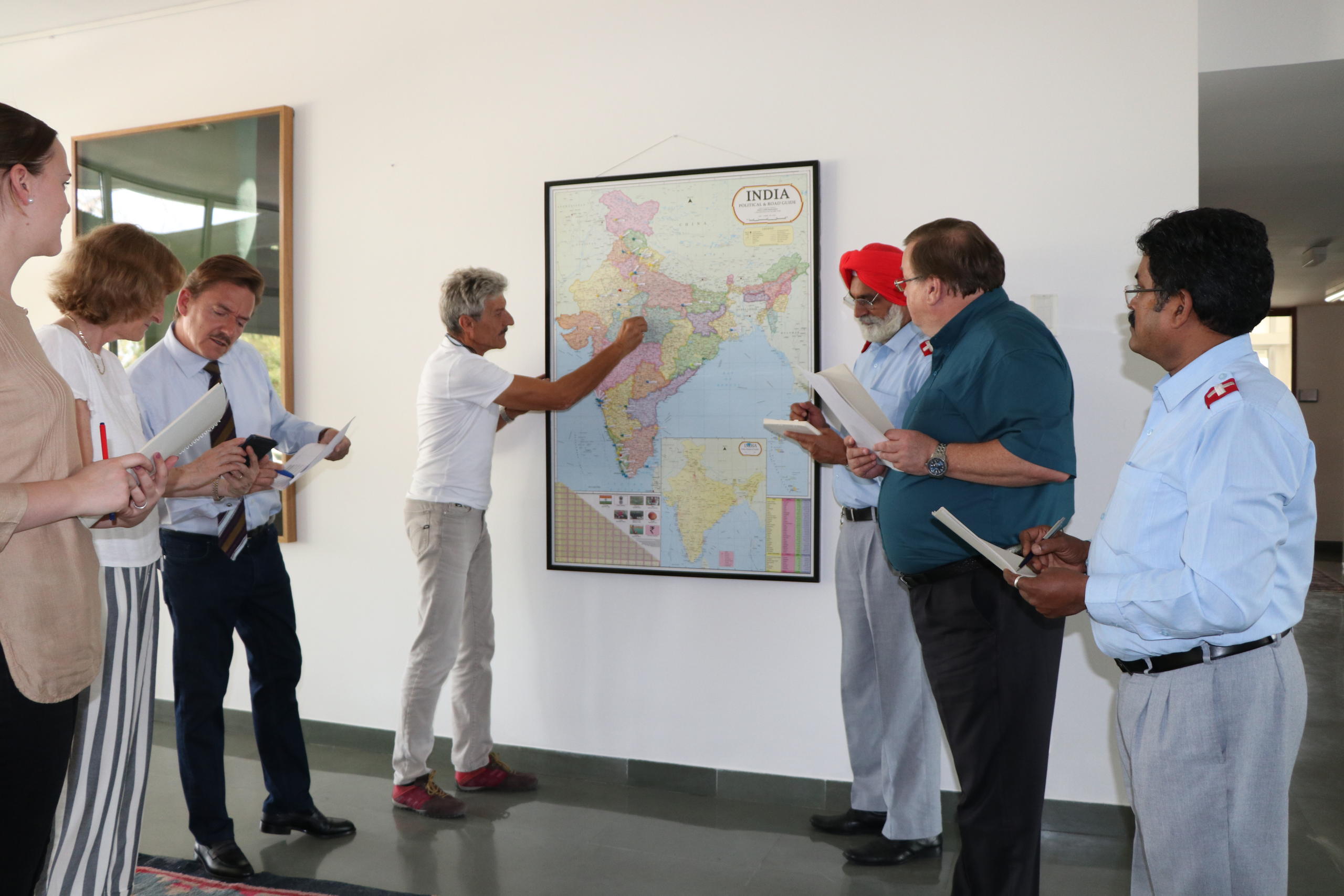
Answers came from two ambassadors who job share: Pedro Zwahlen, who is responsible for Australia; and Yasmine Chatila Zwahlen, who is responsible for Papua New Guinea, the Solomon Islands, Nauru, Vanuatu and Kiribati. Swiss travellers in these areas are often particularly adventurous, they write. If travellers remain “blocked in the most remote areas of the world”, things can quickly become “somewhat complicated”.
“In mid-March we divided the Canberra team into two shifts, working alternately in the embassy offices,” they write. “This increases the chance that not everyone will fall ill at the same time, should a colleague become infected. Those who do not work in the office work online. Apart from some chronic Internet problems, this works quite well, even if we miss the daily exchange during the coffee break.”
They say the most complex task in recent weeks has been “to help Swiss people travel home because international air traffic has collapsed. Countless fellow citizens have been seeking the advice of the embassy and consulate. Together with other European diplomats, we try to assess the travel possibilities and coordinate special flights with the head office”. Asked if they are sleeping, they reply only that “when night comes here, day begins in Bern”.
But the crisis, they point out, has led not only to immediate operational challenges such as repatriating Swiss nationals and reorganizing embassy work; it has changed many things in the world. “We must also keep these in mind,” write the job share pair. “What are the consequences of the rapid and fundamental shocks on geopolitics in our region? What impact does the crisis have on power relations and political and social stability? The wheel of history is turning faster.”
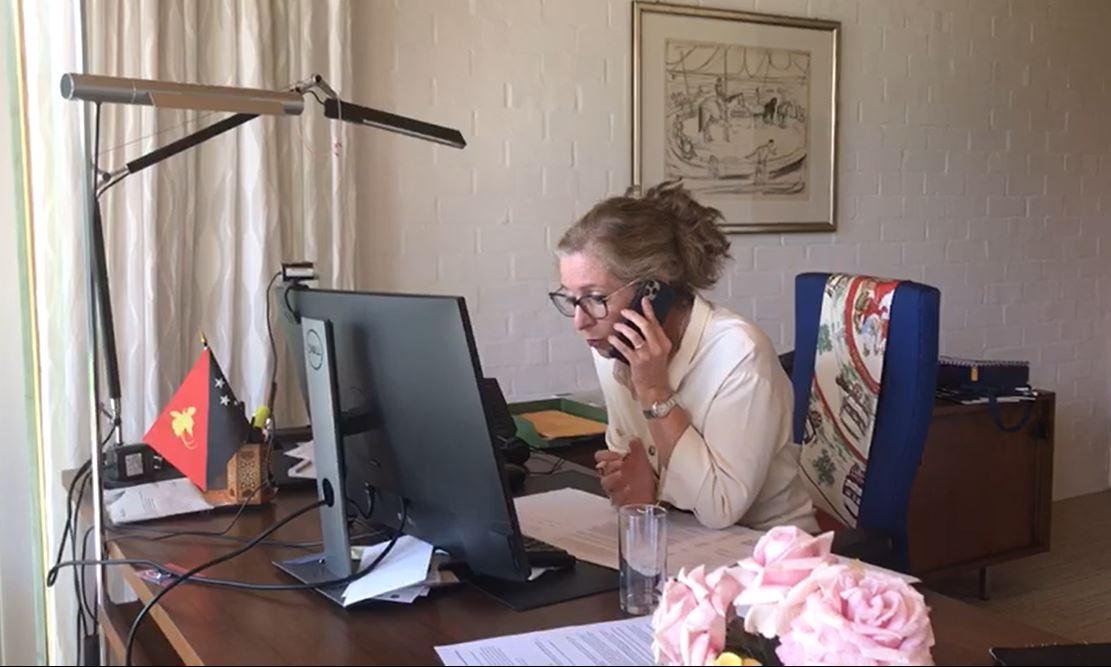
“I have experienced similar situations, for example during the war in Yugoslavia, but without Swiss tourists,” writes Ambassador Markus-Alexander Antonietti from Peru. He says he sleeps “briefly, but with intense dreams”.
Peru is also in strict lockdown. A core team is working at the embassy and the rest from home, he says.
The size of the country and the severely reduced travel possibilities within Peru have led to “big practical problems in the repatriation of tourists, who are spread all over the country (3.5 times the size of Germany, but without the infrastructure of Germany)”. The embassy has had to organise bus convoys to bring Swiss nationals and travellers from other European countries to the capital Lima.
In this situation, solidarity is extremely important, he writes. “In Peru, it exists between the countries of the EU and us. I have been on EU chat and in EU Skype meetings. We have already helped dozens of EU citizens with domestic transport and repatriation, and the EU has helped us.”
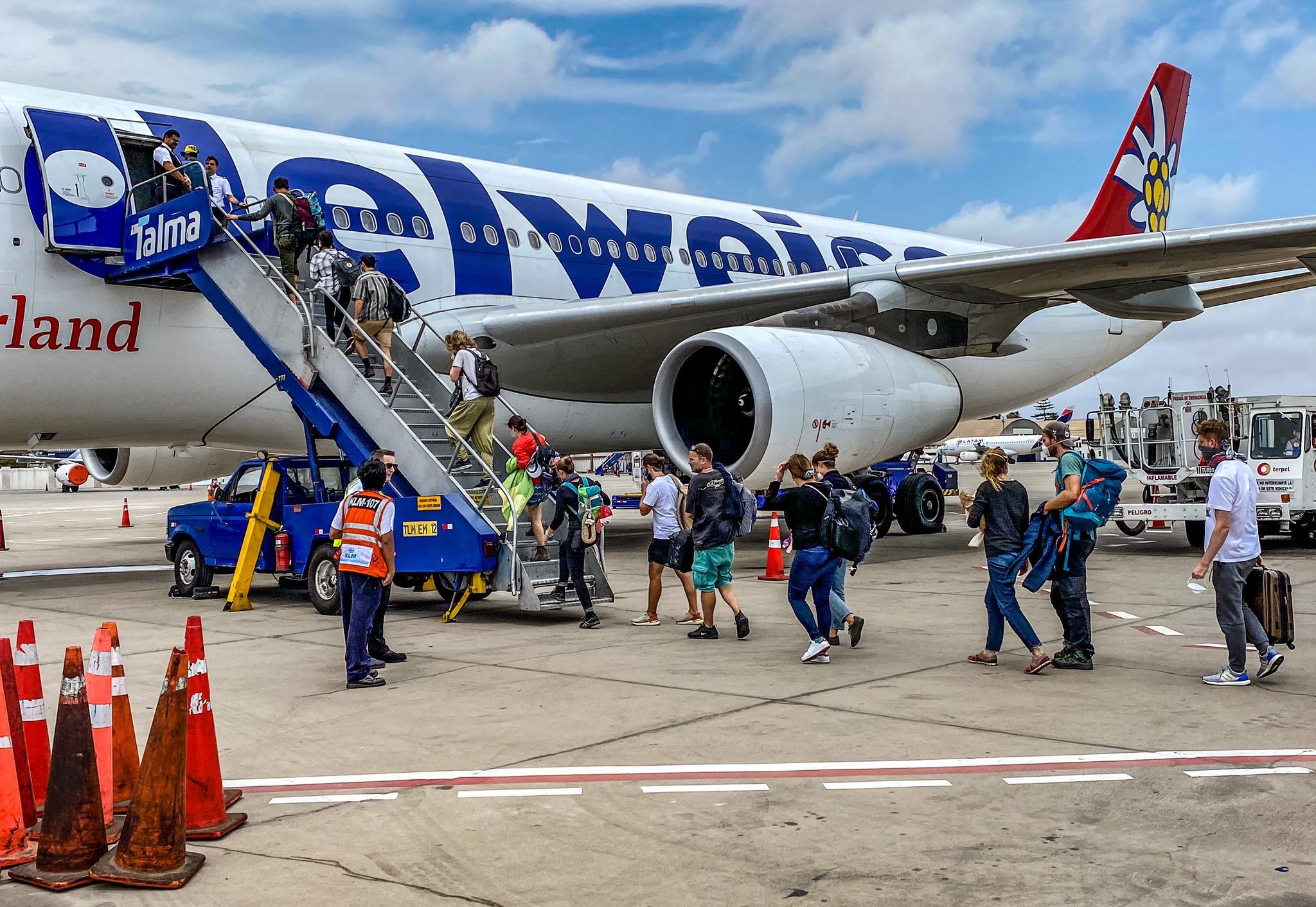
In times like these, all the contacts and network established in the past become particularly important, writes Ambassador Yves Rossier from Moscow. Official meetings have become very rare, and conversations with the Russian authorities usually take place by telephone. No online events are planned, because “a large part of non-verbal communication would be lost”.
He also stresses the importance of solidarity. “We communicate daily with other embassies, coordinating and comparing approaches. Return flight options for Swiss citizens are also discussed with other diplomatic missions. Swiss nationals in Russia are kept regularly informed of the situation, and we are in close contact with the Swiss Club of Moscow, which supports and informs Swiss people in Russia through a WhatsApp group.”
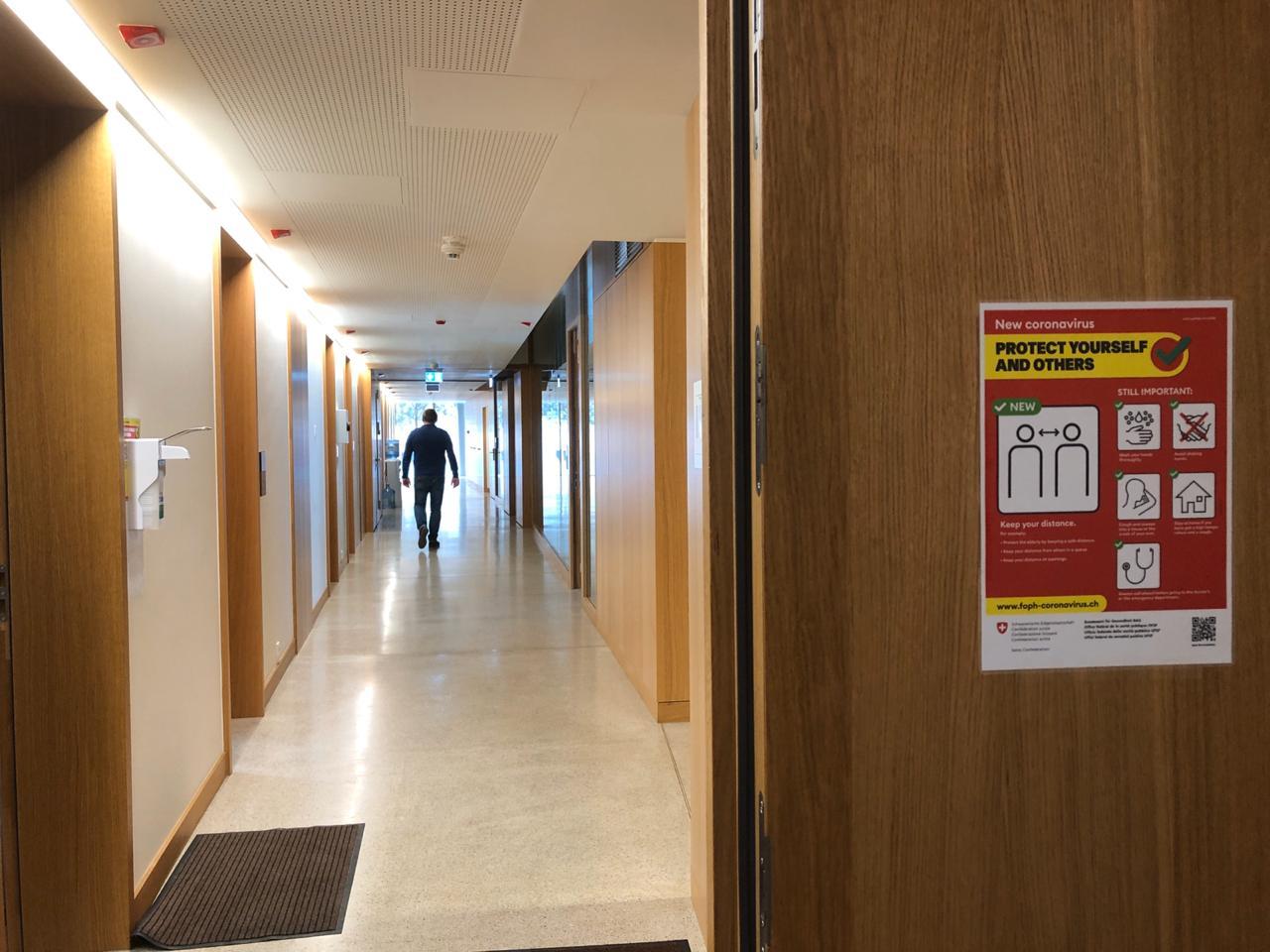

In compliance with the JTI standards
More: SWI swissinfo.ch certified by the Journalism Trust Initiative













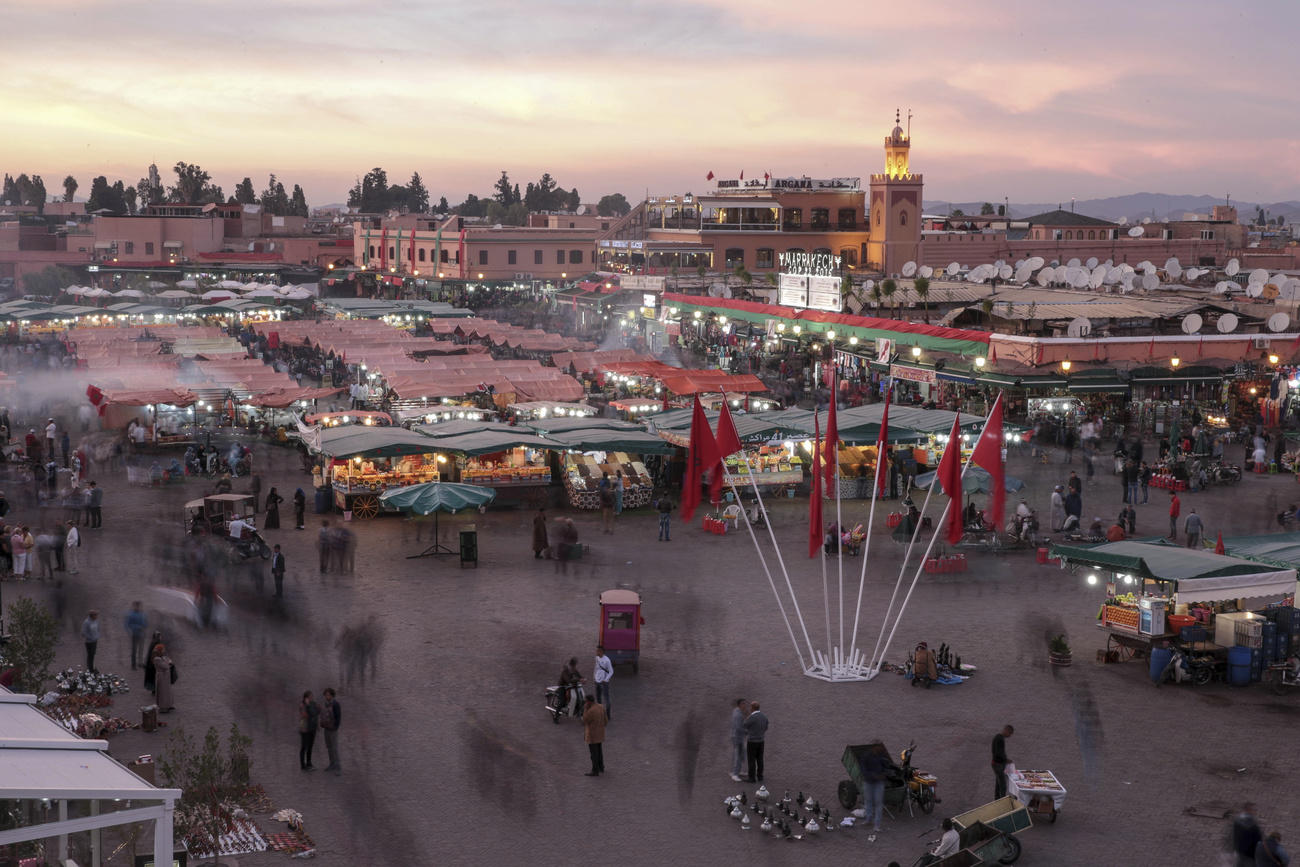
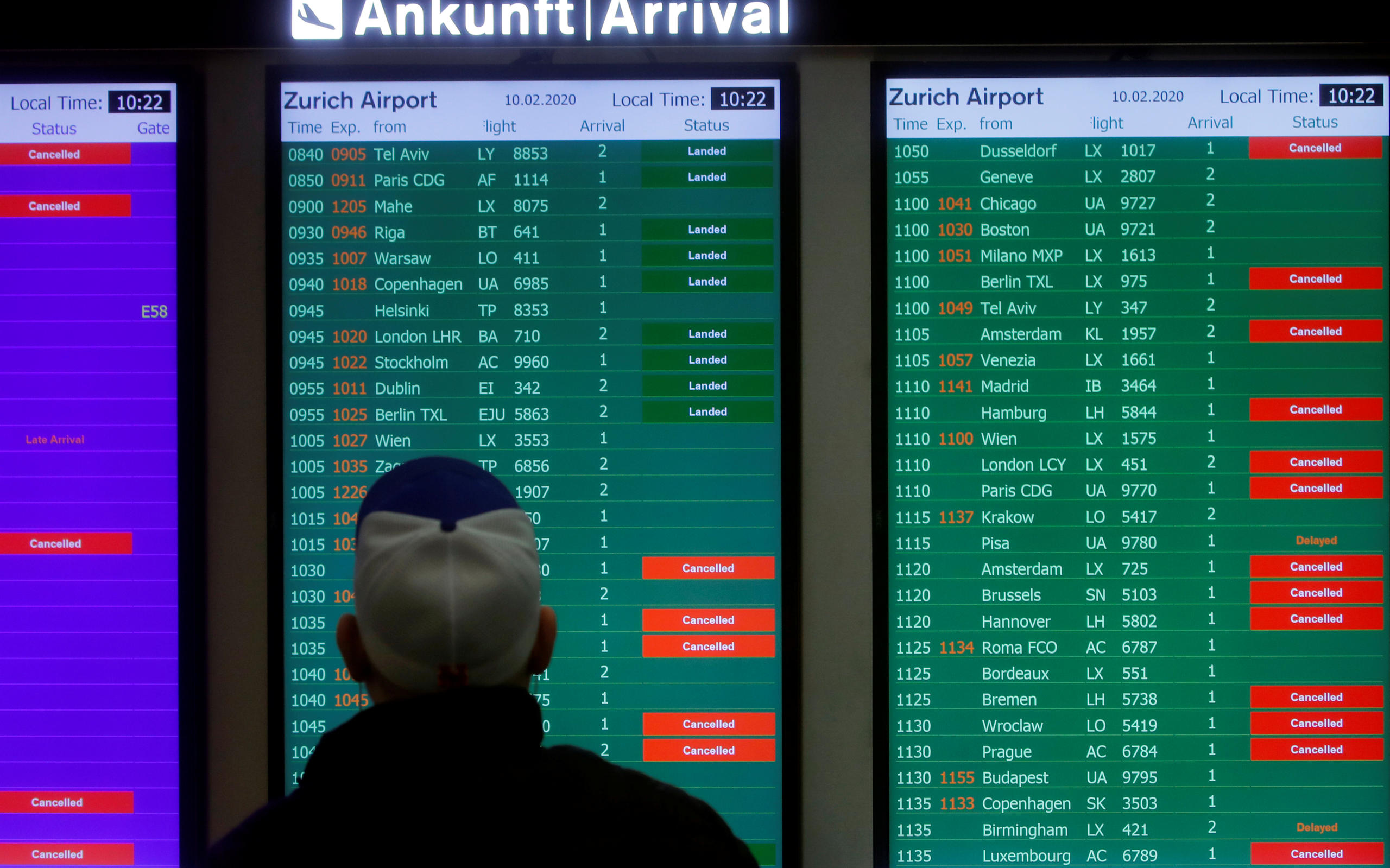

You can find an overview of ongoing debates with our journalists here . Please join us!
If you want to start a conversation about a topic raised in this article or want to report factual errors, email us at english@swissinfo.ch.